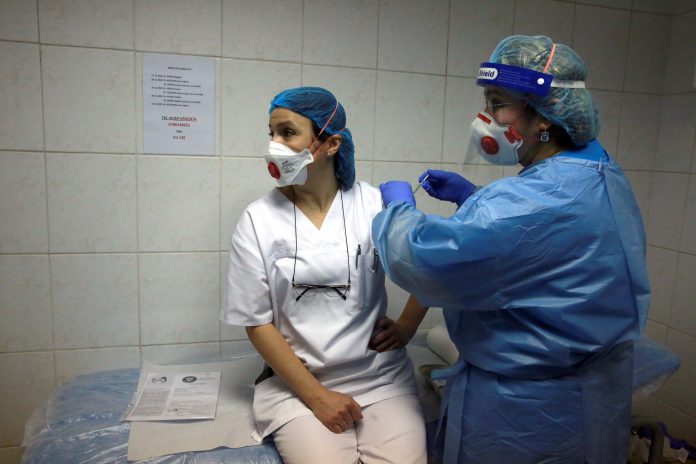European regulators have approved their third vaccine, AstraZeneca – which comes after a week of tense communications between the two parties
The European Medicines Agency (EMA) have assessed the AstraZeneca and Oxford University vaccine to be safe to use, for all those aged 18 and above.
They found efficiency to be 60% in the trials which they assessed as part of their decision-making process.
70.4% effective in Brazilian and South African clinical trials
The vaccine has been said to be 70.4% effective by officials. The vaccine is known to have an impact on transmission, including in asymptomatic infections. Ethnic minorities from Brazil and South Africa also participated in the original clinical trials, to test that the vaccine has the same outcome for varying ethnicities.
One of the key things about the UK vaccine is that it can be stored at ‘fridge temperature’ (2-8°C), which makes it possible to circulate using existing cold supply chains. The Moderna and Pfizer vaccines require a much colder storage temperature, that makes supply and demand slightly more difficult to navigate.
The vaccine is allowed to be given to older patients, despite German experts publicly stating that the vaccine lacks enough successful data on that age group.
This moment comes after a week of tense communication
This makes AstraZeneca the third approved COVID vaccine for the Bloc, with an expected shipment coming in the first quarter of 2021. However, the Commission has recently accused the british drugmaker of purposefully limiting their supply – as AstraZeneca announced a delivery of 60% less doses.
In response to this, the Commission begun to instil a “transparency mechanism” that would enable them to examine where any EU-manufactured doses were heading, and why.
In an interview given on 26 January, the AstraZeneca CEO hit back at the accusation – citing complex scientific procedures and their potential risks at the EU-based site. Pascal Soriot, CEO, explained: “Now, some of those batches have very high yield and others have low yield. Particularly in Europe, we had one site with large capacity that experienced yield issues. So it’s essentially a question of when you scale up to the level we are scaling up to – something like this that’s never been done.”
The Commission remained unmoved by the long interview. Some asked, is this the beginning of a vaccine war?











